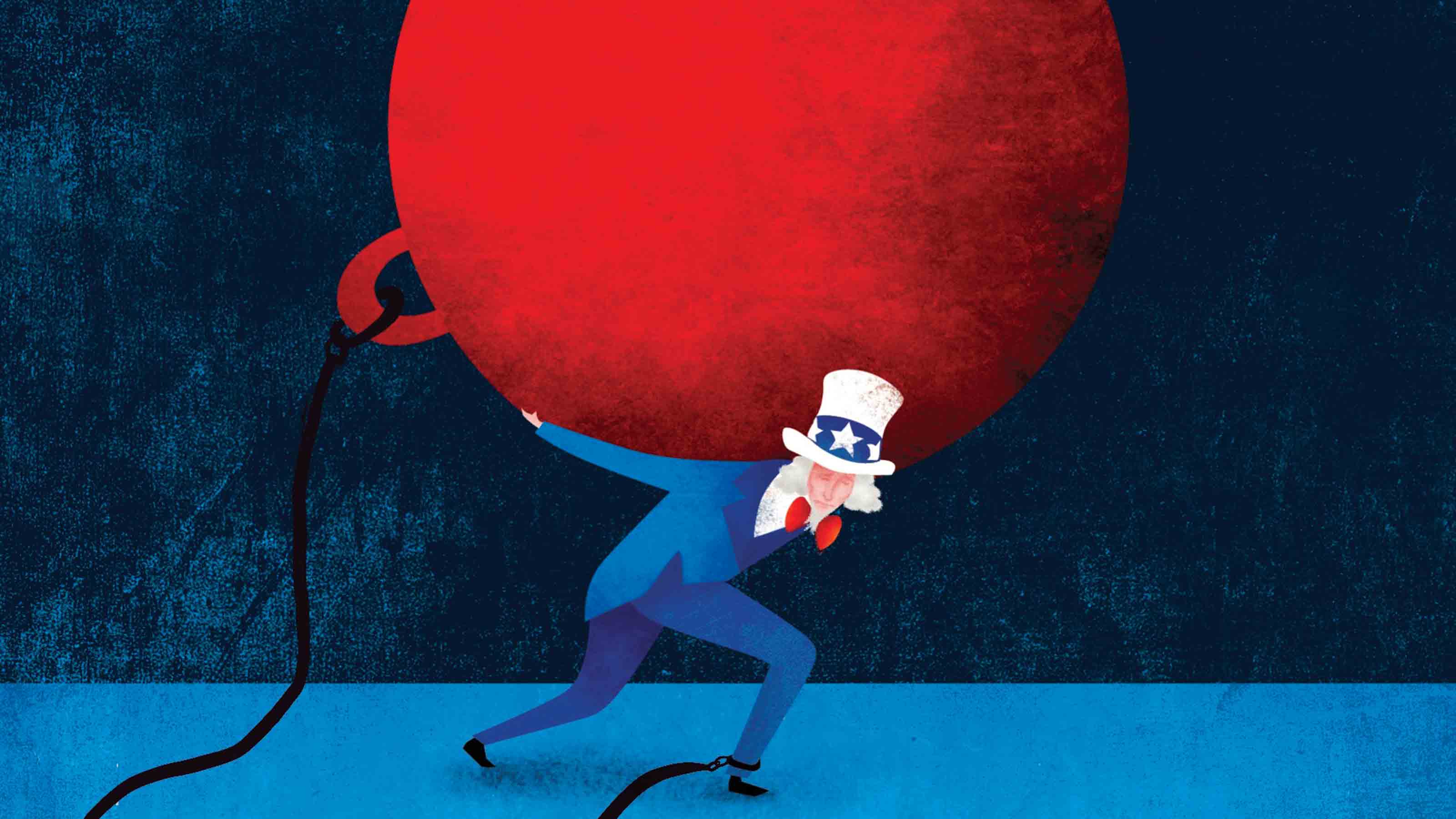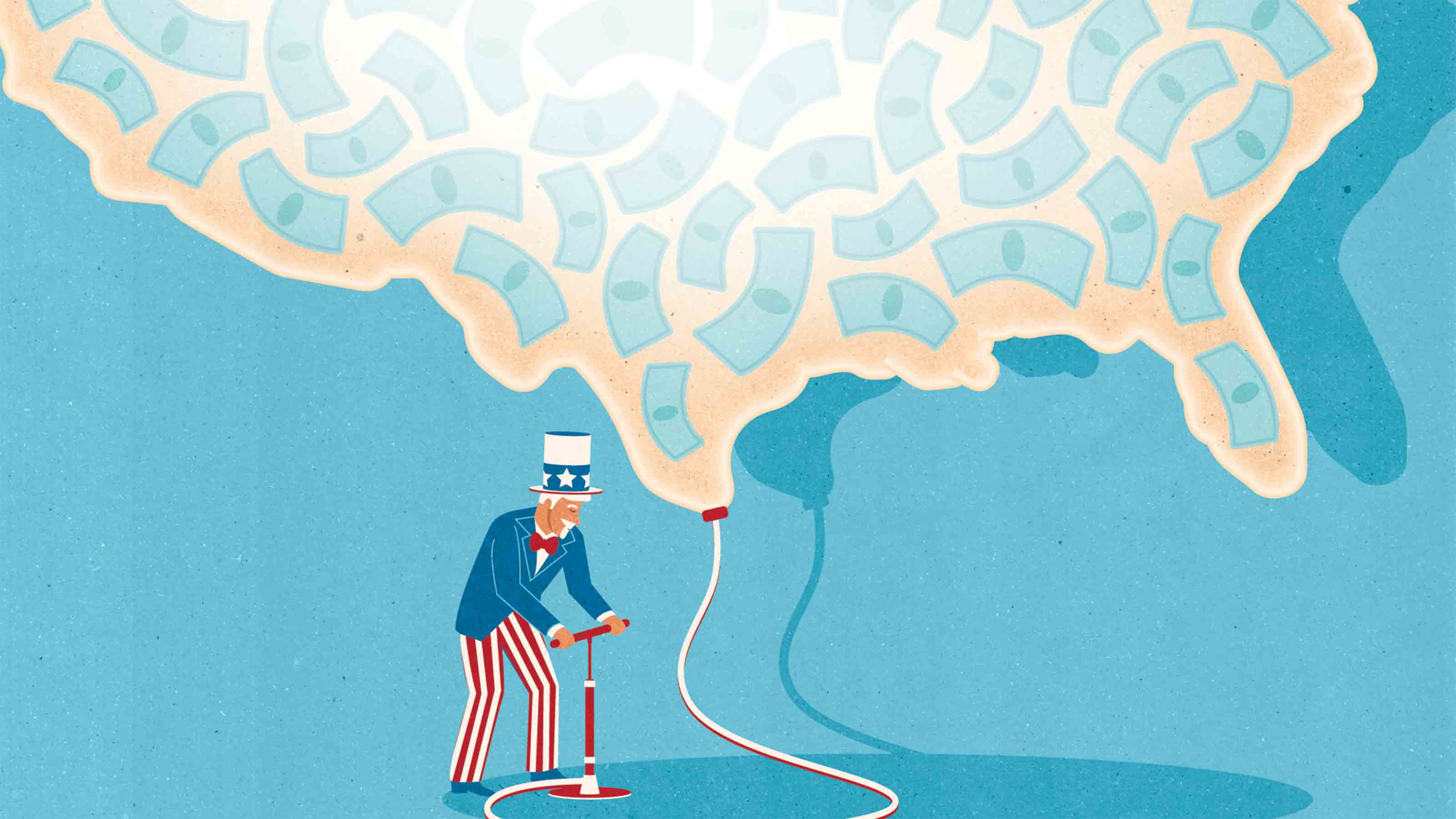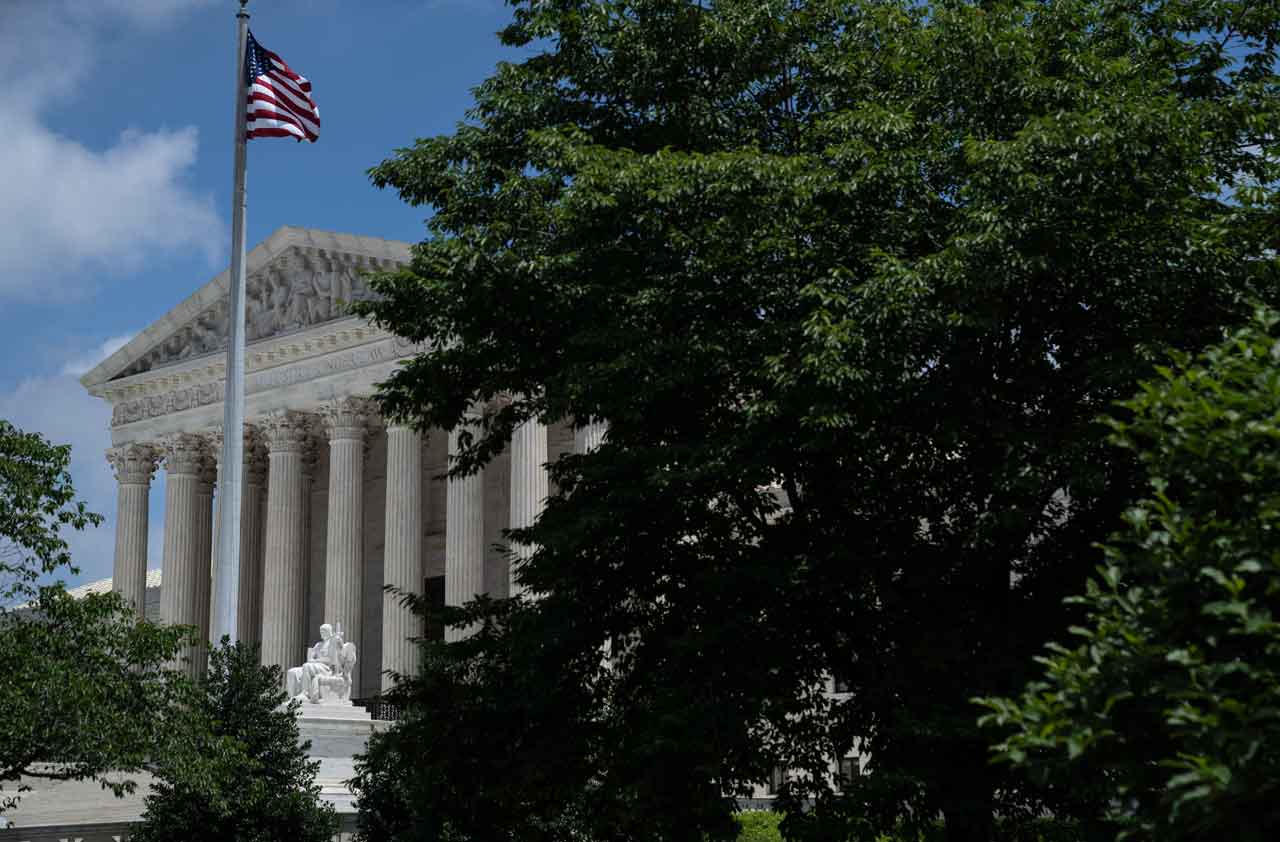Americans Finding More Jobs, in More Categories
Though there’s still too much slack in the workforce, the improvement is palpable.

Profit and prosper with the best of Kiplinger's advice on investing, taxes, retirement, personal finance and much more. Delivered daily. Enter your email in the box and click Sign Me Up.
You are now subscribed
Your newsletter sign-up was successful
Want to add more newsletters?

Delivered daily
Kiplinger Today
Profit and prosper with the best of Kiplinger's advice on investing, taxes, retirement, personal finance and much more delivered daily. Smart money moves start here.

Sent five days a week
Kiplinger A Step Ahead
Get practical help to make better financial decisions in your everyday life, from spending to savings on top deals.

Delivered daily
Kiplinger Closing Bell
Get today's biggest financial and investing headlines delivered to your inbox every day the U.S. stock market is open.

Sent twice a week
Kiplinger Adviser Intel
Financial pros across the country share best practices and fresh tactics to preserve and grow your wealth.

Delivered weekly
Kiplinger Tax Tips
Trim your federal and state tax bills with practical tax-planning and tax-cutting strategies.

Sent twice a week
Kiplinger Retirement Tips
Your twice-a-week guide to planning and enjoying a financially secure and richly rewarding retirement

Sent bimonthly.
Kiplinger Adviser Angle
Insights for advisers, wealth managers and other financial professionals.

Sent twice a week
Kiplinger Investing Weekly
Your twice-a-week roundup of promising stocks, funds, companies and industries you should consider, ones you should avoid, and why.

Sent weekly for six weeks
Kiplinger Invest for Retirement
Your step-by-step six-part series on how to invest for retirement, from devising a successful strategy to exactly which investments to choose.
Not only has the pace of job growth accelerated in recent months, but also the hiring is spreading out to a range of sectors. And that’s good news, no matter how you cut it.
Health care continues to lead the pack. It skated through the recession, adding a half million jobs even as the overall economy was losing about 8.5 million. Help wanted signs are out for physical and occupational therapists, nurses, speech pathologists, radiation technologists and cardiological technologists, to name a few examples. A raft of cities, among them Pittsburgh, Orlando and Las Vegas, will benefit from expansion of medical services as the population continues to age.
Also hiring: Financial services, after going through the wringer during the recession. Accountants, bookkeepers and managers are finding work. Business and professional services, where there are more jobs for management consultants, lawyers, executive secretaries, office managers and others providing administrative support. And sales and marketing -- retail clerks, customer service reps and so on.
From just $107.88 $24.99 for Kiplinger Personal Finance
Become a smarter, better informed investor. Subscribe from just $107.88 $24.99, plus get up to 4 Special Issues

Sign up for Kiplinger’s Free Newsletters
Profit and prosper with the best of expert advice on investing, taxes, retirement, personal finance and more - straight to your e-mail.
Profit and prosper with the best of expert advice - straight to your e-mail.
Even hotels and restaurants are picking up. McDonald’s aims to add 50,000 as a national hiring day on April 19, boosting its U.S. workforce by almost 8%. Although some scoff that most of the jobs will go to low-paid burger flippers, youngsters, from 16 to 24, need paychecks, too. Their jobless rate hit a whopping 19.5% late last year.
What’s more, as Mark Vitner, senior economist with Wells Fargo Securities, notes, an important byproduct of younger workers being hired by McDonald’s is the experience they gain, helping them become more productive at other jobs down the road.
Manufacturing jobs are finally on the rise, too. Some examples: A new Volkswagen assembly plant in Chattanooga, Tenn., will add about 3,000 jobs, and General Motors is adding a third shift at a plant in Flint, Mich. At manufacturing firms of all types, managers complain that it’s hard to find experienced machinists and engineers.
But the picture isn’t totally sunny. Some dark clouds hover: The pace of overall growth is slow, as employers continue to hold down costs and wring more production from the existing workforce. Manufacturing production, for example, is up 12% since it hit bottom during the recession, but hiring has climbed a mere 2%.
Construction jobs are just starting to hit bottom. Down two million since the recession began, the sector has gained 36,000 jobs since January. The sector won’t add many jobs for years.
And sluggish wage hikes are a concern. Some slack is good, preventing a surge in pay that would fuel inflation. But right now, there’s simply too much slack. About 13.5 million people are unemployed, about 30% of them have been out of a job for more than a year, making it especially tough for them to break back into the workplace because new skills are constantly being tacked on to job requirements. Roughly 2.5 million are able to work but have quit trying to find a job for at least the past month. And an additional 8.4 million people are making do with part-time work though they want a full-time schedule, and pay.
As a result, wage increases this year will roughly match inflation -- with both rising about 2.5%. Increasing energy prices make matters worse, cutting into the real value of wages and discouraging firms -- especially the small ones that fuel job growth -- from hiring.
Without fatter paychecks, consumer spending, which accounts for about 70% of gross domestic product, can’t grow much. Or as Diane Swonk, chief economist with Mesirow Financial, puts it: With annualized GDP growth stuck around 3%, the economy is just treading water.
Profit and prosper with the best of Kiplinger's advice on investing, taxes, retirement, personal finance and much more. Delivered daily. Enter your email in the box and click Sign Me Up.

-
 How Much It Costs to Host a Super Bowl Party in 2026
How Much It Costs to Host a Super Bowl Party in 2026Hosting a Super Bowl party in 2026 could cost you. Here's a breakdown of food, drink and entertainment costs — plus ways to save.
-
 3 Reasons to Use a 5-Year CD As You Approach Retirement
3 Reasons to Use a 5-Year CD As You Approach RetirementA five-year CD can help you reach other milestones as you approach retirement.
-
 Your Adult Kids Are Doing Fine. Is It Time To Spend Some of Their Inheritance?
Your Adult Kids Are Doing Fine. Is It Time To Spend Some of Their Inheritance?If your kids are successful, do they need an inheritance? Ask yourself these four questions before passing down another dollar.
-
 Federal Debt: A Heavy Load
Federal Debt: A Heavy LoadEconomic Forecasts The debt continues to grow, but record-low interest rates could ease the long-term damage.
-
 How the Fed's Moves Affect You
How the Fed's Moves Affect YouEconomic Forecasts It’s pumping trillions of dollars into the economy and keeping rates near zero. Savers are sunk, but borrowers get a boost.
-
 U.S. Manufacturing Is Already Ailing from Coronavirus
U.S. Manufacturing Is Already Ailing from CoronavirusEconomic Forecasts Supplies are hard to come by, and in the longer-term demand may be at risk.
-
 Consumers Will Feel Impact of Rapidly Falling Interest Rates
Consumers Will Feel Impact of Rapidly Falling Interest RatesEconomic Forecasts Mortgage and car loans will experience the most significant dips, while some holders of Treasuries may get a slight boost.
-
 Will You Have to Pay More Sales Taxes on Your Online Purchases?
Will You Have to Pay More Sales Taxes on Your Online Purchases?business One thing’s for sure: Consumers who live in one of the five states without a sales tax won’t be affected by the Supreme Court’s ruling.
-
 What to Expect From the New Fed Chief
What to Expect From the New Fed ChiefEconomic Forecasts By and large, Jerome Powell will move along the path set by his predecessor.
-
 How a Border Tax Would Affect You
How a Border Tax Would Affect YouBusiness Costs & Regulation A plan to limit imports could raise prices but also create more jobs.
-
 A Housing Shortage Looms: Builders Can’t Keep Up
A Housing Shortage Looms: Builders Can’t Keep Upbusiness Starter homes especially are becoming scarce.